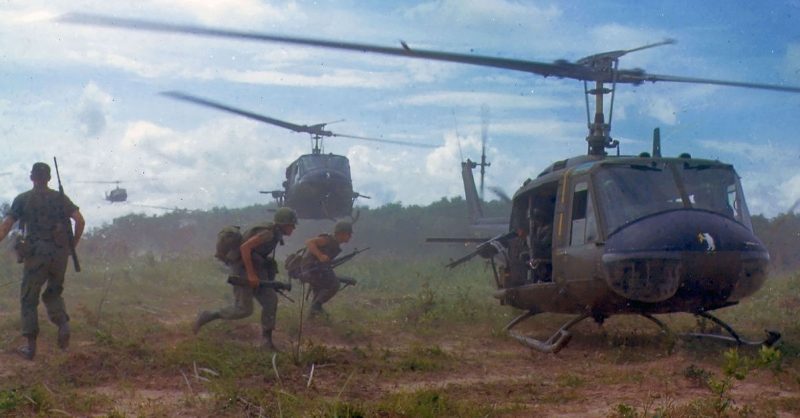President Lyndon B. Johnson called Richard Nixon on November 2, 1968. In the call, the president in no uncertain terms, accused the presidential candidate of treason.
Johnson was convinced that Nixon’s campaign was actively working to end peace talks that could bring a close to the Vietnam War. Their concern was that an end to the war would aid Hubert Humphrey, Nixon’s rival in the election campaign, to win the election.
Johnson threatened Nixon that he would go public with this information, just days before the election.
But Johnson never did publicize his evidence that Nixon was interfering with peace in Vietnam. In part, it was due to the emphatic denial Nixon made in person the next day. But, more importantly, Johnson didn’t have the smoking gun he needed to conclusively prove Nixon’s involvement.
Historian John Farrell believes he has found the evidence Johnson needed to accuse Nixon himself of being involved in the treasonous activity.
In 1968, there was a real chance for peace. The Soviet Union had convinced North Vietnam to negotiate for peace. All that was needed was for the US to get South Vietnam to agree to it too. At the beginning of November, there were goodwill gestures from each side in preparation for the negotiations. The Communists stopped their artillery attacks on cities and stopped firing across the Demilitarized Zone between North and South Vietnam. Johnson stopped the US bombing campaign, and there were 24 hours of peace as of November 2.
Johnson called Senator Everett Dirksen (R-Ill.), who was a friend of Nixon’s. “If Nixon keeps the South Vietnamese away from the conference, well, that’s going to be his responsibility. Up to this point, that’s why they’re not there.”
Farrell has discovered notes made by Nixon’s close aide, H. R. Haldeman. Haldeman would go on to become Nixon’s chief of staff and was eventually found guilty in the Watergate trial.
On October 22, 1968, Haldeman kept notes of a telephone conversation he had with Nixon. The notes appear to show Nixon discussing ways to stop the peace process. He asks, “Any other way to monkeywrench it?” He even asks if there’s “anything RN can do?”
Haldeman made one note from Nixon, “Keep Anna Chennault working on SVN” (South Vietnam)
Chennault was a Republican doyenne, the widow of a World War II hero who fought in East Asia. She had ties to the South Vietnam government. US intelligence identified her as a principal player in the attempt to encourage South Vietnam to delay or boycott the peace talks.
An intercepted message from her to the South Vietnamese embassy stated, “Hold on, we are gonna win.” It stated that it came from “her boss.”
Nixon never confessed to being involved in efforts to stop the peace process. In an interview on November 3, 1968, Nixon states, “My God. I would never to do anything to encourage [South Vietnam] not to come to the table.” Farrell claims that was a lie and that the lives that were at stake and the ten years of war that followed make Nixon’s efforts to stop the peace process “more reprehensible than anything Nixon did in Watergate.”
Some historians are withholding praise for Farrell’s discovery, but most agree that Farrell indeed found the evidence needed to prove that Nixon was involved.
Historians also point out that Johnson was using the peace talks to help Humphrey’s campaign. While it is questionable to use war as a tool to get elected, it isn’t illegal for the President to do that.
Since Nixon was a private citizen, it was illegal under Federal Law for him to interfere with the peace talks. Both men were willing to use the war to further their own initiatives.
It’s not clear whether the peace talks would have been successful, had they occurred. The South Vietnamese boycotted the talks which proceeded to collapse, Public Radio International reported.
Over 21,200 US troops were killed in Vietnam and Southeast Asia after the peace talks collapsed. Hundreds of thousands of Vietnamese died during the same time period.
